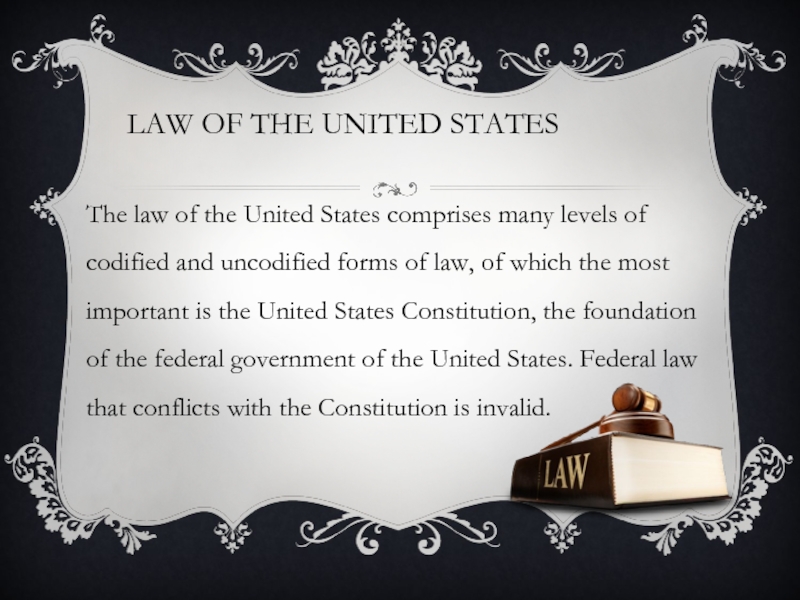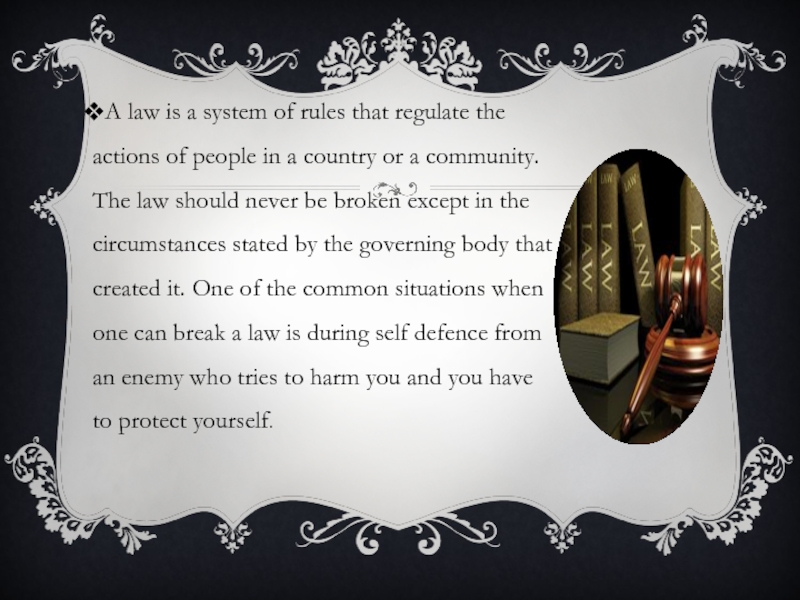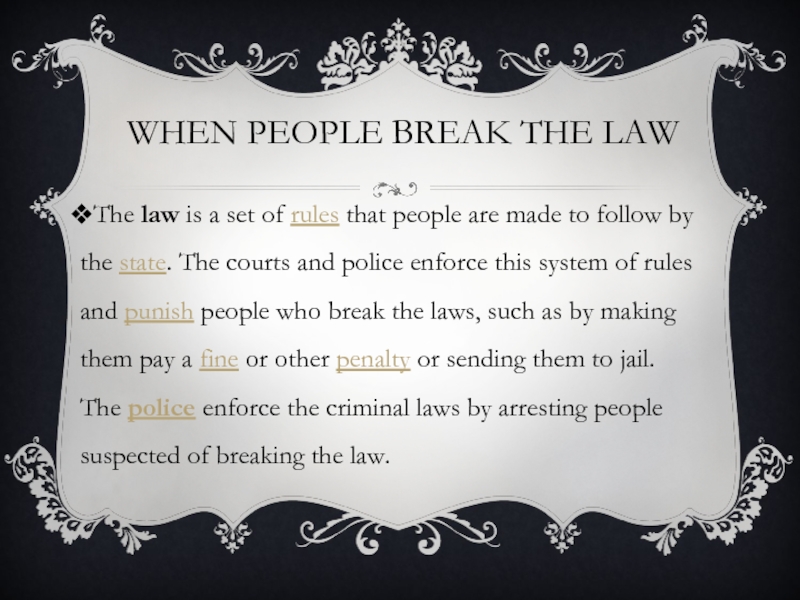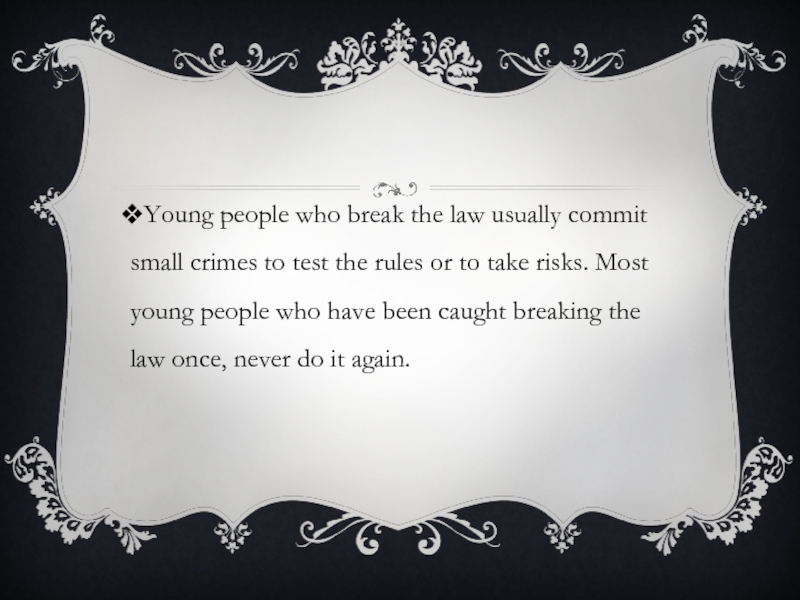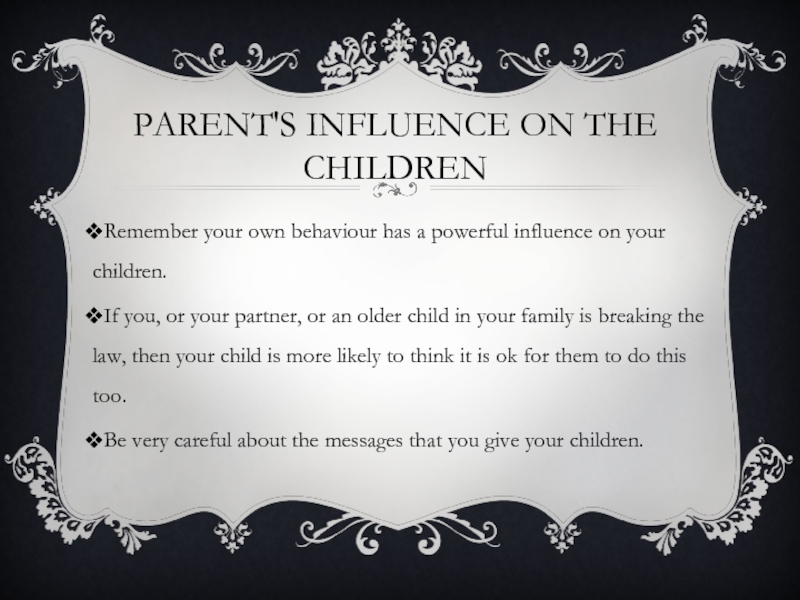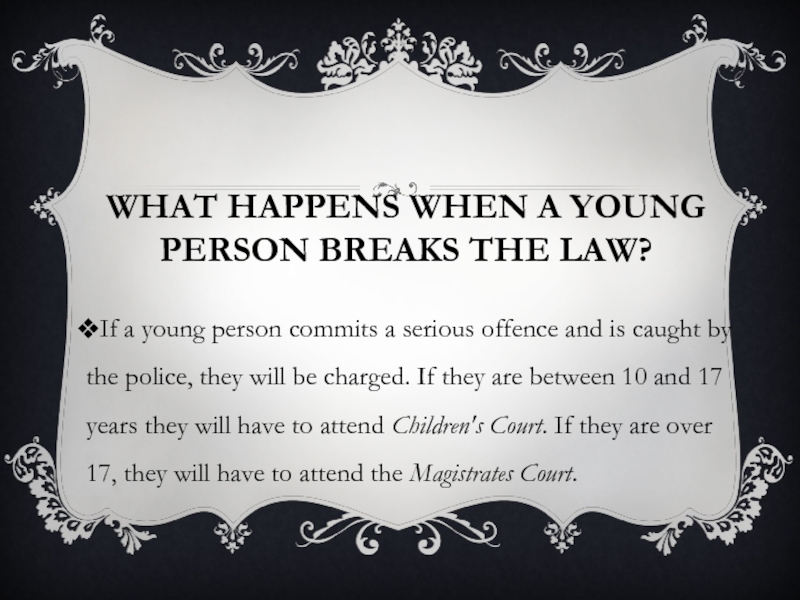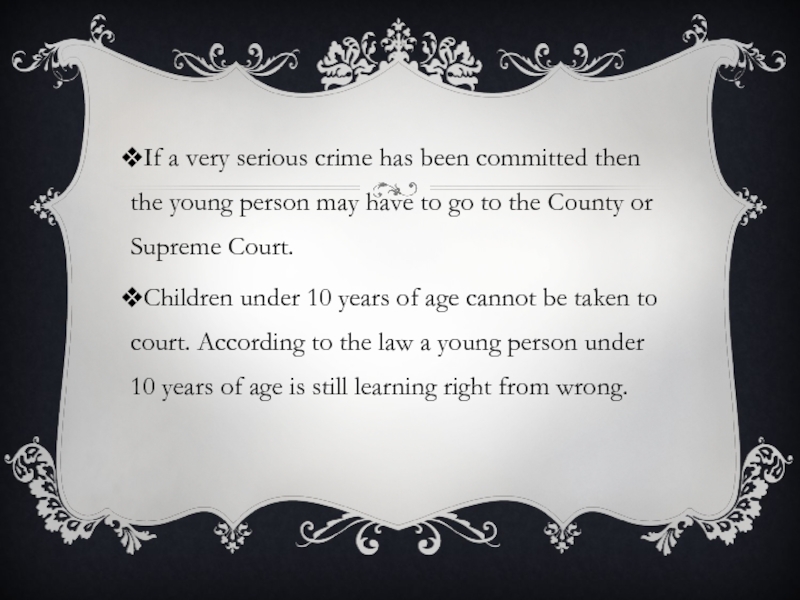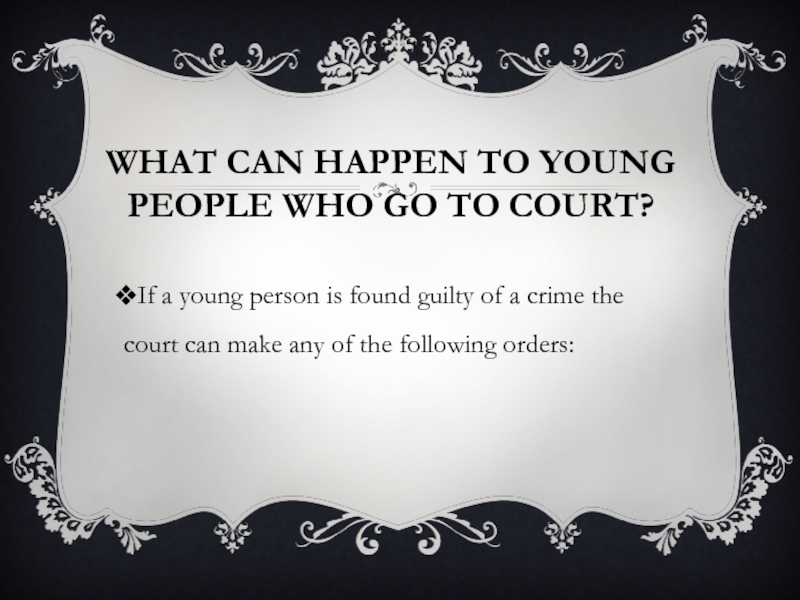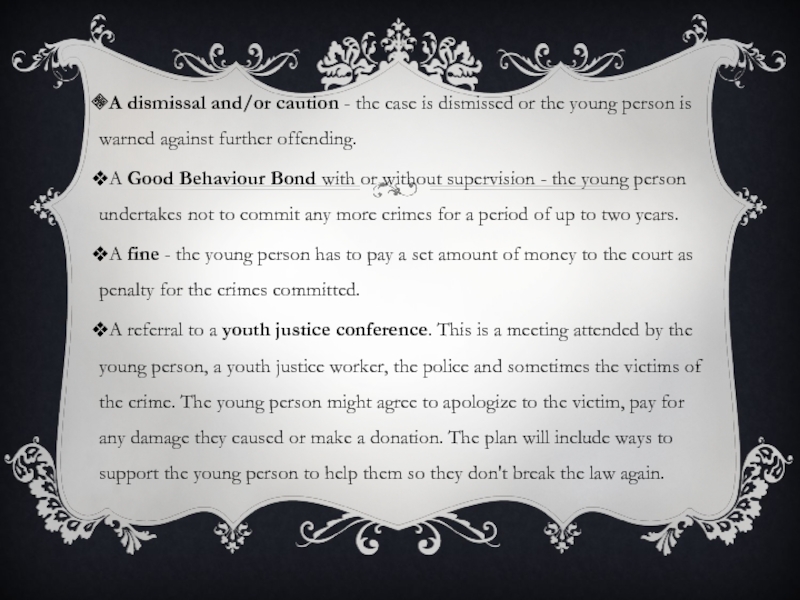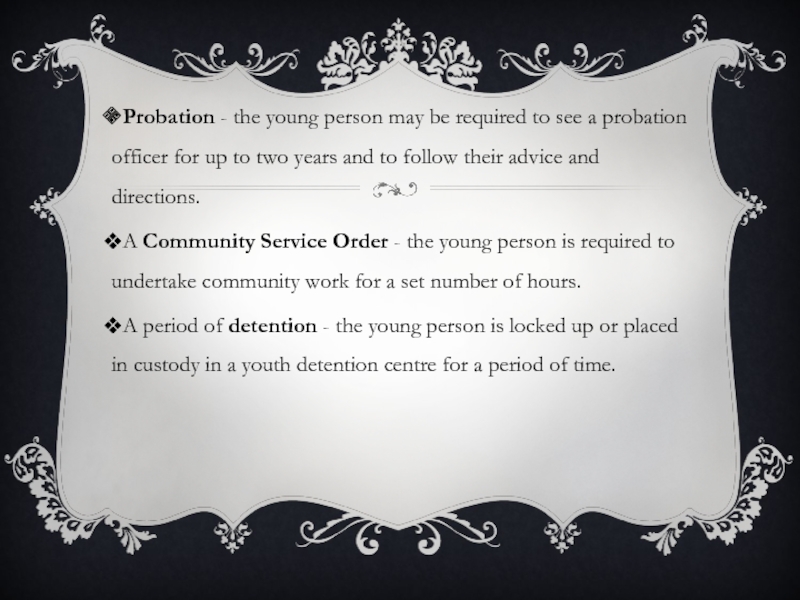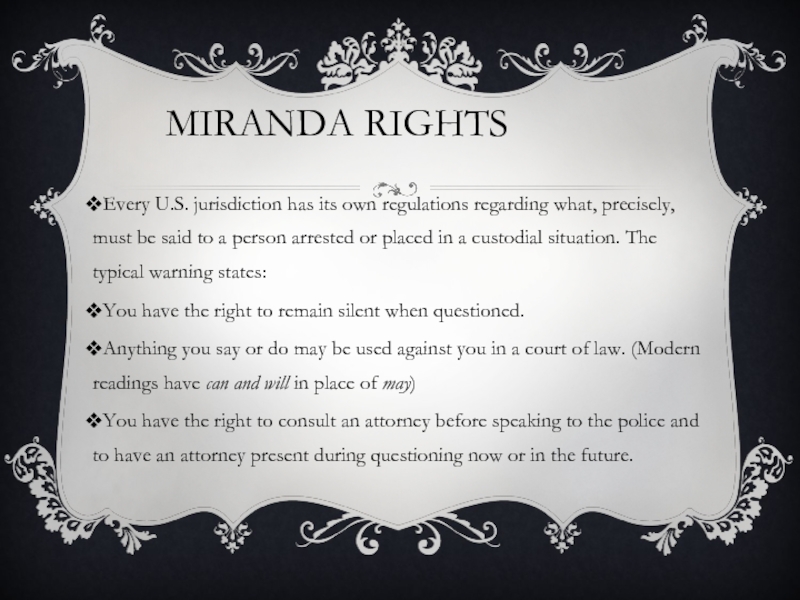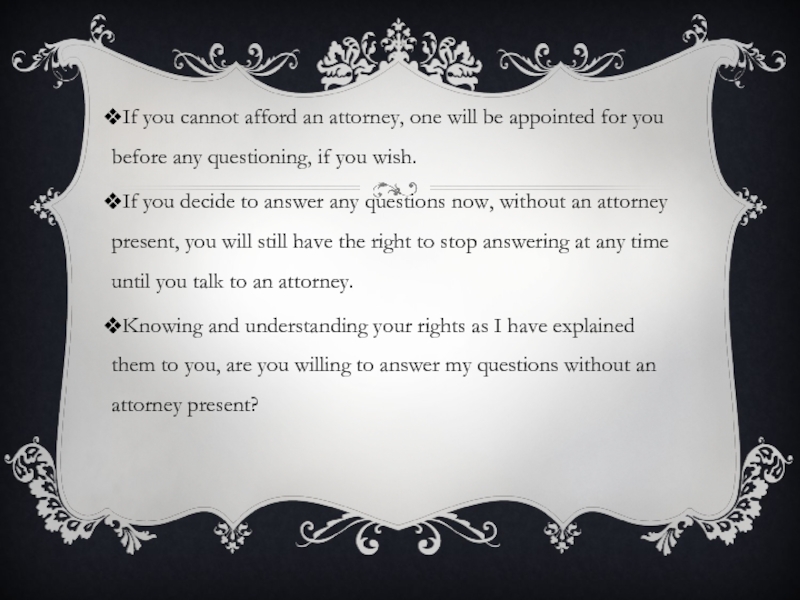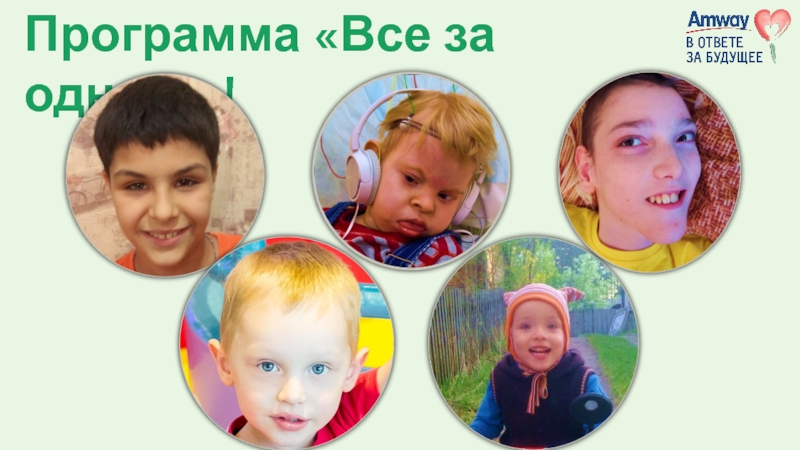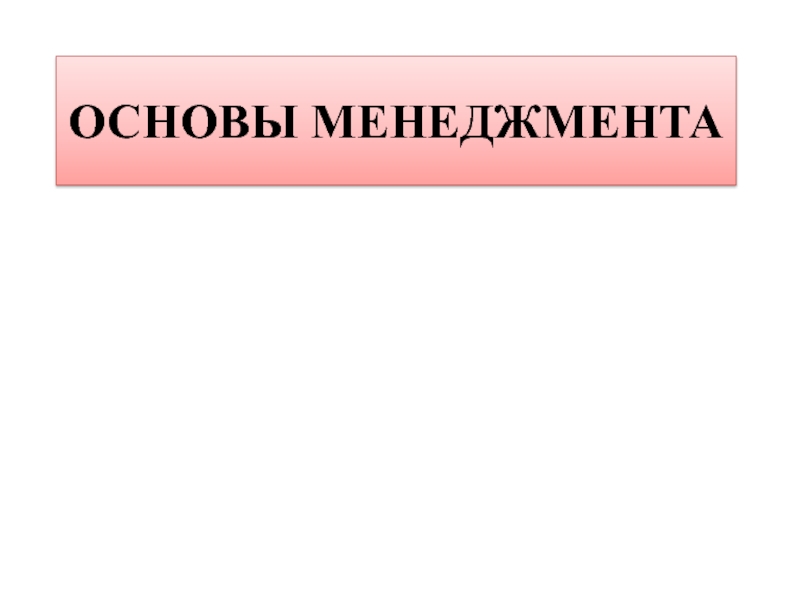Разделы презентаций
- Разное
- Английский язык
- Астрономия
- Алгебра
- Биология
- География
- Геометрия
- Детские презентации
- Информатика
- История
- Литература
- Математика
- Медицина
- Менеджмент
- Музыка
- МХК
- Немецкий язык
- ОБЖ
- Обществознание
- Окружающий мир
- Педагогика
- Русский язык
- Технология
- Физика
- Философия
- Химия
- Шаблоны, картинки для презентаций
- Экология
- Экономика
- Юриспруденция
Law and right of the United States of america
Содержание
- 1. Law and right of the United States of america
- 2. Law of the United States The law of
- 3. A law is a system of rules
- 4. when people break the lawThe law is a set
- 5. Young people who break the law usually
- 6. Parent's influence on the childrenRemember your own
- 7. What happens when a young person breaks
- 8. If a very serious crime has been
- 9. What Can Happen to Young People who
- 10. A dismissal and/or caution - the case is
- 11. Probation - the young person may be required
- 12. Miranda rightsEvery U.S. jurisdiction has its own
- 13. If you cannot afford an attorney, one
- 14. Thanks for attention
- 15. Скачать презентанцию
Law of the United States The law of the United States comprises many levels of codified and uncodified forms of law, of which the most important is the United States Constitution, the foundation of the
Слайды и текст этой презентации
Слайд 2Law of the United States
The law of the United States comprises many
levels of codified and uncodified forms of law, of which the
most important is the United States Constitution, the foundation of the federal government of the United States. Federal law that conflicts with the Constitution is invalid.Слайд 3A law is a system of rules that regulate the
actions of people in a country or a community. The
law should never be broken except in the circumstances stated by the governing body that created it. One of the common situations when one can break a law is during self defence from an enemy who tries to harm you and you have to protect yourself.Слайд 4when people break the law
The law is a set of rules that people are
made to follow by the state. The courts and police enforce
this system of rules and punish people who break the laws, such as by making them pay a fine or other penalty or sending them to jail. The police enforce the criminal laws by arresting people suspected of breaking the law.Слайд 5Young people who break the law usually commit small crimes
to test the rules or to take risks. Most young
people who have been caught breaking the law once, never do it again.Слайд 6Parent's influence on the children
Remember your own behaviour has a
powerful influence on your children.
If you, or your partner, or
an older child in your family is breaking the law, then your child is more likely to think it is ok for them to do this too.Be very careful about the messages that you give your children.
Слайд 7What happens when a young person breaks the law?
If a
young person commits a serious offence and is caught by
the police, they will be charged. If they are between 10 and 17 years they will have to attend Children's Court. If they are over 17, they will have to attend the Magistrates Court.Слайд 8
If a very serious crime has been committed then the
young person may have to go to the County or
Supreme Court.Children under 10 years of age cannot be taken to court. According to the law a young person under 10 years of age is still learning right from wrong.
Слайд 9What Can Happen to Young People who go to Court?
If
a young person is found guilty of a crime the
court can make any of the following orders:Слайд 10A dismissal and/or caution - the case is dismissed or the
young person is warned against further offending.
A Good Behaviour Bond with or
without supervision - the young person undertakes not to commit any more crimes for a period of up to two years.A fine - the young person has to pay a set amount of money to the court as penalty for the crimes committed.
A referral to a youth justice conference. This is a meeting attended by the young person, a youth justice worker, the police and sometimes the victims of the crime. The young person might agree to apologize to the victim, pay for any damage they caused or make a donation. The plan will include ways to support the young person to help them so they don't break the law again.
Слайд 11Probation - the young person may be required to see a
probation officer for up to two years and to follow
their advice and directions.A Community Service Order - the young person is required to undertake community work for a set number of hours.
A period of detention - the young person is locked up or placed in custody in a youth detention centre for a period of time.
Слайд 12Miranda rights
Every U.S. jurisdiction has its own regulations regarding what,
precisely, must be said to a person arrested or placed
in a custodial situation. The typical warning states:You have the right to remain silent when questioned.
Anything you say or do may be used against you in a court of law. (Modern readings have can and will in place of may)
You have the right to consult an attorney before speaking to the police and to have an attorney present during questioning now or in the future.
Слайд 13If you cannot afford an attorney, one will be appointed
for you before any questioning, if you wish.
If you decide
to answer any questions now, without an attorney present, you will still have the right to stop answering at any time until you talk to an attorney.Knowing and understanding your rights as I have explained them to you, are you willing to answer my questions without an attorney present?

